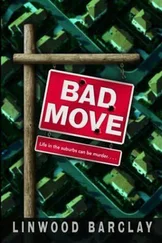Sayão is talking to his men. He addresses a few words directly to each man in a pleasant offhand leisurely tone. Now and then he taps a man on the arm or lets a hand slide along his shoulders. When he turns towards us to step into the driver’s seat we can see that he is a great deal older than he seemed at first glance. A man in his late forties. His eyes are a little bloodshot from the night driving yesterday. He swings the car around carelessly and drives down the highway. As he drives he leans back over the seat to tell us about the colônia.
Four years ago there was nothing. This was part of the federal government’s colonization plan. Colonization was not his specialty. He’s spent his life building roads. His pleasure has been in the fabrication of highways. It is the kind of outdoor life he likes.
“How many families have moved in already?” asks one of my companions.
“Around three thousand … This is cellular colonization, a lot of people crowding around a center …”
“The state land office says thirty thousand,” interrupts the judge.
“That includes settlers outside the colônia … What we need, I’m beginning to think, is strip colonization, that is, to build roads and settle the land on either side …” Sayão swerves the car off the gravel and up a hill and stops on a grassy knoll in front of another unfinished building of raw brick. “This is our sugar mill. While we are waiting for the rest of the machinery we are going to use the generators to give light and power.”
After looking through the mill we walk out among the hills of darkgreen corn sprouting vigorously out of the deep forest loam among the stumps and the charred trees so recently felled. “You see,” Sayão explains, kicking at a stump a good four feet across, “we are not quite ready to use farm machinery. Our machines are hoes and the muscles in men’s backs.”
“How does a man ever get started hacking down the jungle?”
“I’ll show you.” As keen as a small boy with his first erector set, driving with one hand on the wheel through the rutted trails, he points out to us the various stages of colonization. He handles the battered sedan carelessly, the way a man might handle a well trained horse.
“The first year is hard,” he explains. The newly arrived often camp out under a tree. Next they’ll put up a bamboo shelter thatched with palm.
In the Brazilian backcountry there’s a mutual aid system known as mutirão . You get together some food and cachaça and a guitar and invite the neighbors in. All the heaviest work is done that way. They’ll work like fiends all day and in the evening they have a party.
Felling the tough hardwoods of the jungle is a man’s work. Snakes are a peril. He tries to keep a stock of antitoxins sent up from São Paulo.
By the end of the year you are beginning to get enough food out of the crops of beans and rice and manioc you planted. Maybe you have something left over to sell, enough to buy shoes with. A couple of more years, if it’s a hardworking family with plenty of children to help, you’ll clear a little more land and sell the timber.
As he drives he points out little shacks in the clearings on either side of the valley. This man’s from Minas. This one from Pernambuco. He brakes the car suddenly and calls to a man and a woman working in a field. João and Maria. They approach the car bashfully, a sunbaked couple with lean Arabian profiles. Sayão tells us they walked a thousand miles from some droughtstricken patch of ground in Ceará, God knows how many months it took them, on foot with their possessions on their heads, working their way as they came. “How are crops?” he asks them.
Their teeth flash as they smile in unison. “Here the land is cool, Mister Doctor,” they chirrup. “We can grow rice without irrigation.”
Sayão laughs happily. “They’ll sell their rice at a profit,” he says as he drives on. “When they get a little cash they’ll buy bricks and build themselves a better house like that fellow over there.”
He points out a little white house with an arched veranda, beside a clump of huge trees. “Then they’ll clear more land and sell the timber to the sawmill and buy cattle … Coffee does magnificently here. We are planting Colombian type coffee for the American market. I want my settlers to plant coffee to tie them to the soil. A coffee plantation is a longterm investment … Brazilians are nomadic. They drift all over the continent. They’ll clear a piece of land and plant a couple of crops on it and move on. I want my people to stay put …”
We drive on through raw plantations of coffee and corn and rice in jagged forest clearings. We visit the hospital and a small unfinished school.
The four things he needs to get a colony going, Sayão is saying as we walk about, are: first, an allweather road; second, proper division of the land so that each man knows what is his; third, a hospital and public health service; and, fourth, schools for the children. “But what I enjoy most is the road.” He shows all his white teeth in a smile. “We are driving a road clear through the center of Brazil.” He motions us back into the sedan.
Soon we have left the settlement behind and are charging north up the straight gravel road through the shaggy jungle. Sayão keeps turning back to talk to us as if he knew the road so well he didn’t have to look at it. Sometimes he takes both hands off the wheel to make a gesture. The car plunges and swerves but he yanks it back without looking … “Here’s where we get our gravel. The soil isn’t so good. You can tell by the smaller size of the trees. Grazing land to be, but it’s full of gravel … we get all we need for the road.” Whenever he speaks of the road his voice takes on an affectionate tone as if he were speaking of one of his children.
“What do you do,” the judge is asking, “when you get settlers who don’t work?”
“When they don’t want to work they leave. The others don’t like to see idle people around. I’ve never had to use the police yet … or any kind of force. We argue with them, we give them friendly advice. But they have to work to eat. We are not running a home for incompetents. They soon catch the spirit of the thing. They see other people building houses, buying clothes, making money. Our people are natural colonizers.”
We drive north for an hour at top speed. Blue mesas begin to rise up in the distance. Beyond the Rio São Patricio, Sayão turns into a construction camp. “Now, Papa, you can’t go too far,” the pretty daughter is insisting. “You have that government commission flying in this afternoon.” He gives her the look of a small boy called in from a ballgame. “All right,” he says, “but at least I can show them on the map.”
The construction camp has an uptodate thrifty look. The living quarters are on trailers. The repairshop looks neat and businesslike. New lathes and Manley presses. Plenty of tools. The portable generators are humming. Everything is screened, there is electric light, a twoway radio.
In part of a shack fitted up as an office Sayão strides up to a map on the wall. He points with his forefinger to the mouths of the Amazon. “The object is to open up communications with Pará, our northern port will be the city of Belém. From São Paulo to Belém we have around twentyfour hundred kilometers to go. There are roads from São Paulo to Anápolis. On the new road from Anápolis we’ve come three hundred and forty.”
He turns from the map to look us in the face with his hard level gaze. “Eventually we must have a road clear through to Belém. While we are waiting we’ll carry the trucks by water on the Rio Tocantins. We are planning to use American landing barges, war surplus … we are negotiating for them in the States.”
Читать дальше












